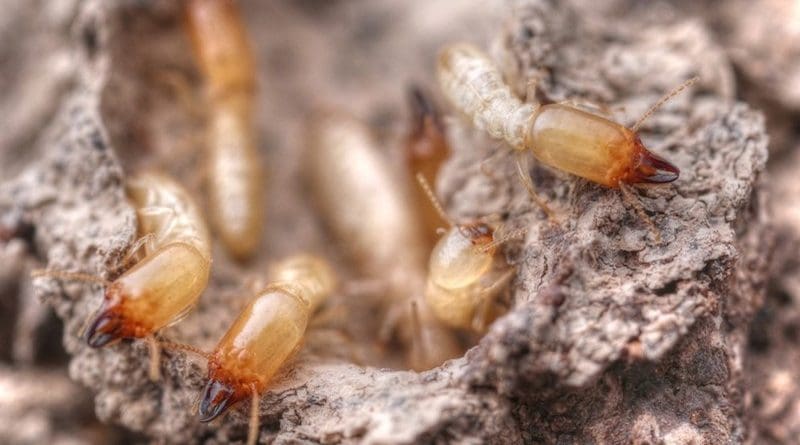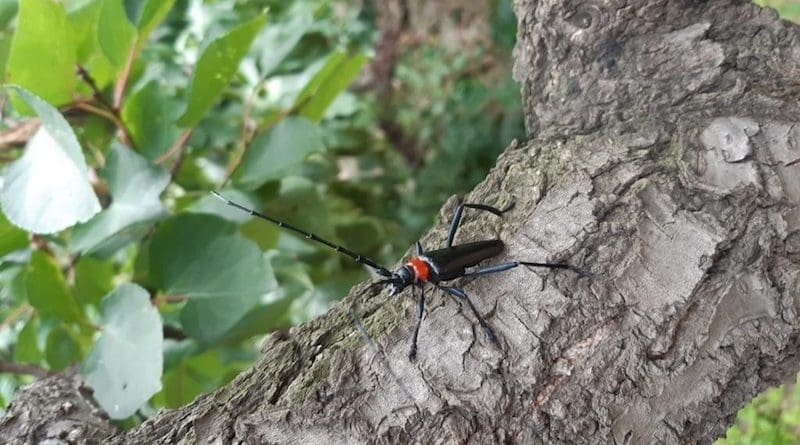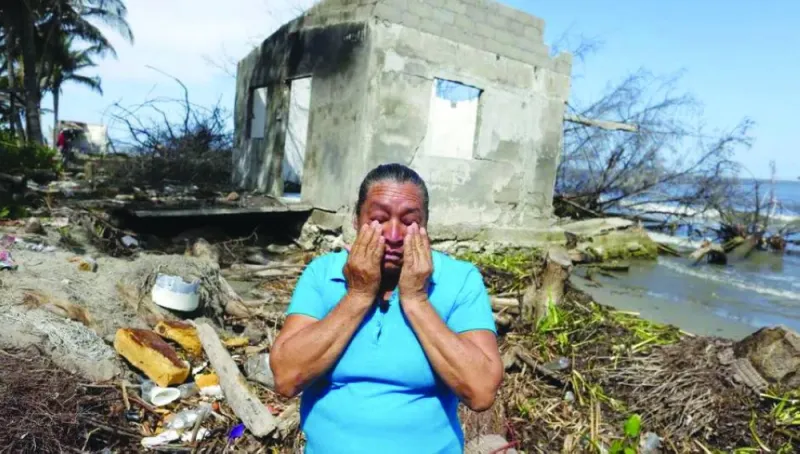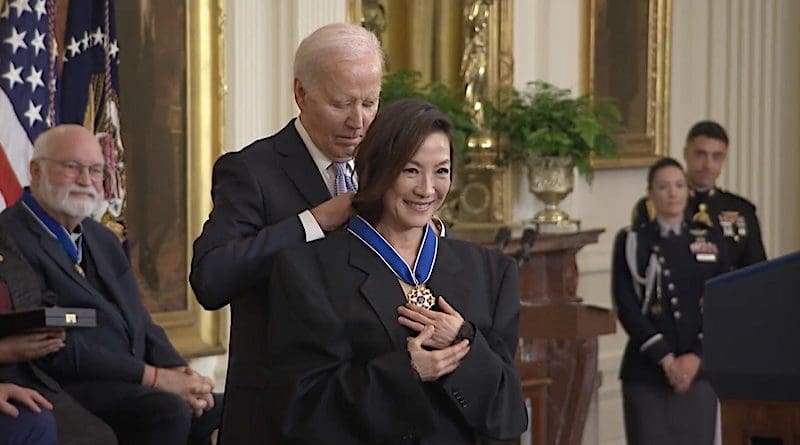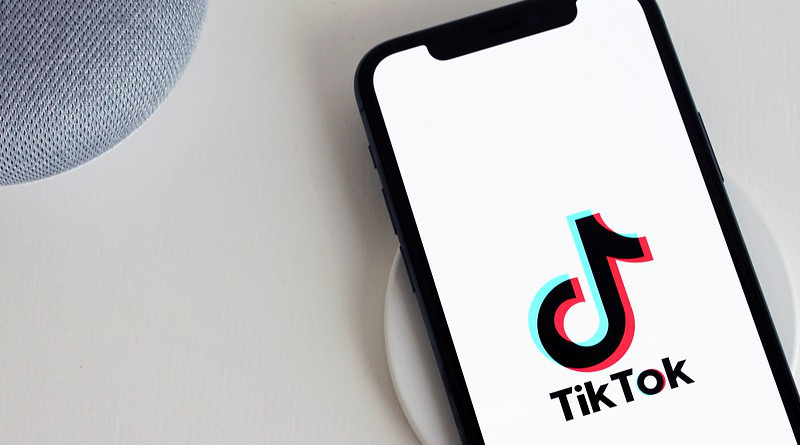
Data Ethics: Why TikTok Faces Unequal Scrutiny – OpEd
By Altaf Moti
The recent push to ban TikTok in the United States has ignited a heated debate about the delicate balance between national security concerns and individual civil liberties. As lawmakers grapple with the implications of this decision, it is essential to examine the broader context and consider the potential consequences for free speech, privacy, and the rights of American citizens.
The Racial Dimension of Surveillance
American domestic surveillance has a troubling history of targeting marginalized communities. In the 1960s, Black activists faced intense scrutiny, and in the post-9/11 era, Muslim Americans were disproportionately surveilled. The latest move to ban TikTok continues this pattern. President Biden recently signed a bill into law that gives ByteDance nine months (or up to a year, under certain conditions) to divest itself of its US business. If ByteDance fails to do so, it will become illegal for US entities to provide web-hosting services to TikTok, effectively banning the app in 2025. ByteDance intends to challenge this law in court arguing that it is unconstitutional. The company aims to protect its interests and prevent the forced sale or complete ban of TikTok in the US.
In August 2020, then-President Donald Trump issued an executive order to effectively ban the app in the United States by prohibiting US entities from making transactions with ByteDance. That order was initially set to go into effect in late September. However, the legal battle continued, and TikTok remained operational in the US.
The Rise of TikTok
TikTok, a short-form video platform, has taken the world by storm. With over a billion users globally, it has become a cultural phenomenon, allowing people to express themselves through music, comedy, and other creative content. However, its rapid rise has also raised eyebrows among policymakers particularly due to its Chinese ownership.
Beyond TikTok: Data Exploitation and Vulnerability
While acknowledging TikTok’s flaws, it’s essential to recognize that the entire data ecosystem is exploitative and vulnerable, regardless of an app’s ownership nationality. The rush to ban TikTok seems motivated by a desire to protect user data from foreign governments. Both Democratic and Republican lawmakers express concerns about TikTok potentially sharing Americans’ data with the Chinese government. This “national security threat” is often framed through vague references to the company’s potential connections with the Chinese Communist Party.
WhatsApp, Meta, and Israeli Military Surveillance
Yet, we have not seen the same outrage from US politicians over reports that data from WhatsApp, owned by the American company Meta, might have been used by the Israeli military in targeting Palestinians. WhatsApp has denied these reports, stating that they are not accurate. However, according to Meta’s last available Transparency Report, the government of Israel made 1,088 requests of the company between January and June 2023. More than half of these requests were categorized as emergency disclosure requests, for which Meta may “voluntarily disclose information to law enforcement” if there is a “good faith reason to believe that the matter involves imminent risk of serious physical injury or death.” Meta produced user data in response to a majority of requests from the Israeli government—78 percent.
Interestingly, there hasn’t been the same level of outrage from U.S. politicians over reports that data from WhatsApp (owned by the American company Meta) might have been used by the Israeli military in targeting Palestinians. WhatsApp has denied these reports, but the issue remains. Meta’s Transparency Reports do not disclose the citizenship of users whose information is requested by foreign governments. The U.S. government’s decision to single out TikTok while ignoring American tech companies’ data-sharing practices suggests that American data and surveillance policy is driven, in part, by racism.
The National Security Argument
The primary argument against TikTok centers on national security. Critics claim that the app’s parent company, ByteDance, could potentially share user data with the Chinese government. While there is no concrete evidence to support this claim, the fear of foreign influence has led to calls for a ban.
The Role of Big Tech
As we grapple with the TikTok ban, we must also examine the role of big tech companies in shaping our digital landscape. Facebook, Twitter, and other platforms wield immense power over public discourse, often making editorial decisions that impact millions of users. The concentration of this power in the hands of a few corporations raises concerns about censorship, bias, and the erosion of democratic values.
The Global Context
It’s hard not to conclude that the TikTok ban is being pursued at this moment because of its impact in empowering voices that were previously marginalized, a situation that is detrimental to the official US narrative. European Commission President Ursula von der Leyen has also hinted at the possibility of a TikTok ban in the EU, mirroring steps already taken against the platform on Commission corporate phones. The global debate around TikTok highlights the tension between national security and individual rights. Governments worldwide are grappling with how to regulate digital platforms without stifling free expression.
The Double Standard
Ironically, the focus on TikTok’s data practices highlights a double standard. American tech companies routinely collect vast amounts of user data, often without explicit consent. Social media giants like Facebook and Google have faced scrutiny for their data-sharing practices, yet they continue to operate freely. The selective outrage over TikTok’s potential data sharing reveals a bias that undermines the principles of equal treatment and fairness.
The Impact on Free Speech
Beyond the data privacy debate, banning TikTok raises serious questions about free speech. The app has become a platform for marginalized voices, allowing users to share their experiences, opinions, and creativity. By stifling TikTok, we risk silencing these voices and limiting the diversity of expression in the digital sphere. The First Amendment protects our right to speak freely, even when that speech challenges the status quo or makes us uncomfortable.
The Legal Precedent
The TikTok ban sets a legal precedent for regulating social media platforms. If the government can ban an app based on national security concerns, what other platforms might face similar scrutiny? The delicate balance between security and individual rights requires thoughtful legislation and judicial oversight. The TikTok case will shape future debates on tech regulation.
As we delve deeper into the complexities of the TikTok ban, we must consider these additional facets. The decision transcends a single app; it reflects broader societal tensions around technology, freedom and governance. Let us engage in informed discussions that safeguard civil liberties while addressing legitimate concerns.

